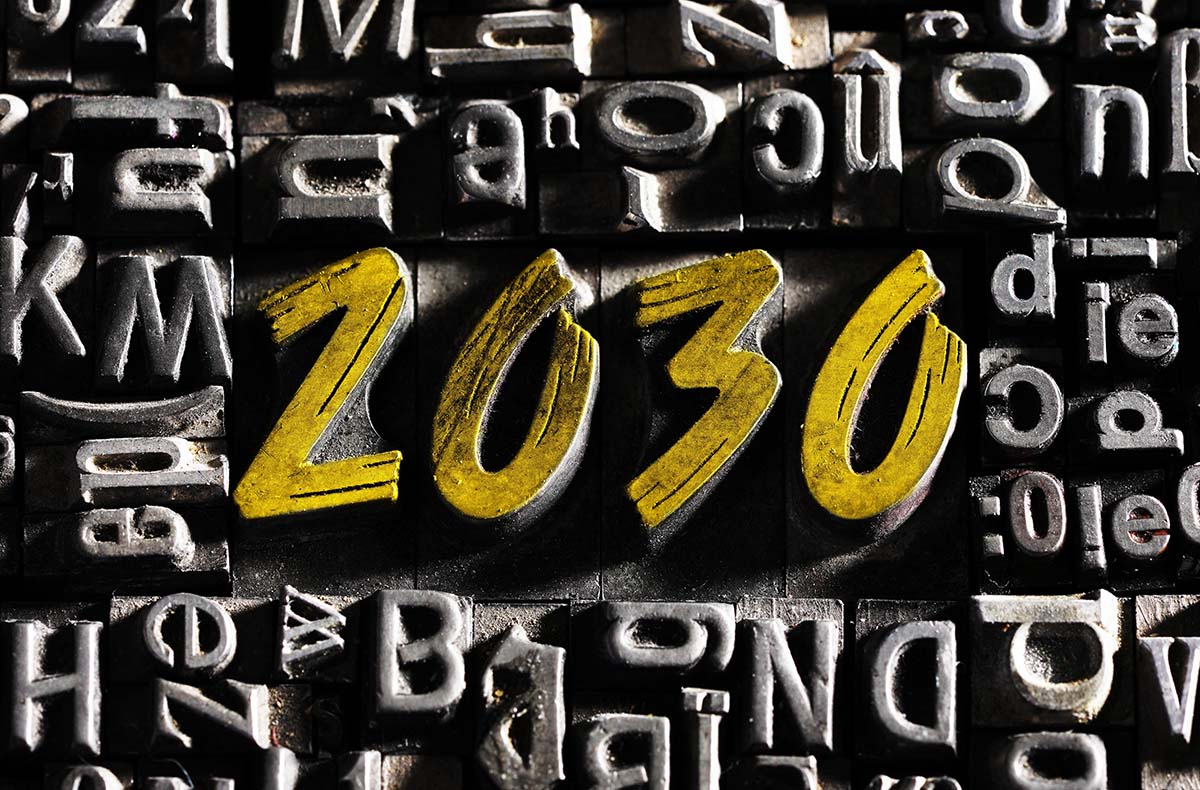
Thursday, 24 February 2022 marked a turning point in history. Vladimir Putin’s invasion of Ukraine has created a humanitarian crisis and ushered in a frightening, new, unabashed era of authoritarian unilateral aggression. However, the invasion itself and the world’s response to it have also brought into stark relief some world economic concerns that have been bubbling under the surface for years. Financially, we’re having a paradigm shift, one that is showing us the limitations of old banking and old rules. The way money changes hands and crosses borders has been evolving for years, but now we are starting to see a dire need to recognize what is no longer serving us. We are beginning to see how new financial technology in blockchain is about to step centerstage.
The financial world is long overdue for a reset. Truth be told, such resets tend to happen every 40 or so years. Frequently, war is the catalyst. In 1972, the implementation of the Bretton Woods system of monetary management and the abandonment of the gold standard fundamentally changed how the world did business. Over the past 20 years, conflicts have raged across the Middle East, but we have had massive shifts of underlying economic power and global GDP market share most notably around China. These are changes to which we have yet to adjust—and I believe we are about to witness a sea-change. The model of defaulting to US dollar-dominated financial institutions no longer necessarily applies.
Our traditional model of central banking is based on a promise: we’ve all agreed to play along a certain set of rules. That compliance allows the system to function. For instance, we agree to trade with each other. I use my currency, you use yours, and in case of doubt, we use the US dollar: we’re all on the same page. One of the fundamental pillars of trade is the Central Bank: it allows us to pay for goods and services, and protects assets that are deposited. However, last week, we saw a sweeping move that canceled the fundamental set of rules we had before 24 February.
By seizing Central Bank assets and shutting down SWIFT for large Russian banking entities, the EU and US have alienated many organizations and entire countries. The seizure and shut-down are ample incentives to think very differently about the institutions we’ve known and relied upon for decades. Alternatives to our traditional system—namely the token economy—suddenly look a lot more appealing. For individuals, corporations, and states alike, decentralized finance suddenly seems a lot more sensible. With scores of Russians unable to access their assets, the argument against central banking is no longer just a thought exercise. This is happening in real time. On a decentralized platform, where there is no one controlling power, no one can seize or freeze your assets.
Beyond the Central Bank shattering the trust on which our current system was founded, we also must acknowledge that, in our new geopolitical reality, our old methods of economic negotiation no longer hold the same power. Today, the US dollar’s primacy is quickly fading, and with this fall from dominance, traditional economic sanctions lose their potency. Sanctions against Russia cannot be as effective as proclaimed, since five of the world’s largest banks are Chinese, in SWIFT, and refusing to acknowledge these sanctions. They can—and will—continue to buy and sell Russian gas in yuan or Rubel, and nothing can be done to stop them. There’s a massive diverging of realpolitik that we’ve never acknowledged: namely that China has taken over a big market share on its own terms. But we’ve not yet had a real reset to adjust to our new geopolitical reality.
Like it or not, the tide has turned: the Russians are looking towards the Chinese, and the fundamental paradigm on which we’ve operated for decades no longer has relevance. It’s a relic. If you’re a Middle Eastern or African state, you won’t ignore that the US has seized the Central Bank’s assets deposited with them. SWIFT is no longer the only option. As I write this, there are some 700 blockchain platforms offering financial alternatives.
The old guard resists this message at every turn. When speaking before some 35 bank CEOs in Frankfurt recently, I was told: “Young lady, I’ve spent 40 years in payment infrastructure. I know my business. I know what it takes, and I can tell you you’re utterly wrong.” But looking back over the past 40 years is not the answer: I have been in the blockchain space for four years now, and the infrastructure is simply no longer the same. The reality is that no one needs SWIFT anymore: there is a choice and a more secure, cheap and competitive alternative. And people who have woken up to the fact that central banks essentially have the ability to steal your funds are going to choose something else.
As I’ve established, realpolitik is shifting towards China. With that in mind, we must ask: how would we fare in ten years’ time when the Chinese are the ones freezing or seizing our assets? We need to move to decentralized finance now, because the tables are turning. We cannot protect our own wealth from a controllable system, because it is a system that can inevitably be manipulated by whomever is in control. Over the past century, the West has rested easy: while countries elsewhere experienced economic collapse or nationalization of private assets, we stayed firm in our belief that this “could never happen to us.” But that’s a bedtime story we’ve soothed ourselves to sleep with, and the war in Ukraine has offered a rude awakening. It could happen to us. And if we don’t prepare, it will. The balance of power is changing: we need to consider what happens when we suddenly find ourselves on the wrong side of who’s in control.
Putin invaded Ukraine. But the damage is not limited to death, destruction, and displacement. Beyond Ukraine’s borders and all 11 of Russia’s timezones, we have simply canceled all the rules that governed our international economy. The promise is broken. The premise is null and void. This invasion is the dawn of a tripolar world: as China fails to comply with sanctions, it becomes the world’s banker. Surely the US and Russia will continue to grapple with one another politically, but China is no longer looming on the sidelines. China is dominating the financial sphere the US simply assumed was its racket to run indefinitely. Their time is up.
The choice for the rest of the world is stark, but also simple: either we can embrace new technology now, and see how it can reset systems to balance the new global economy. We can integrate blockchain and the token economy and maybe have enough optimism and drive to include those shunted to the side for so long. We can cooperate and create something that serves us all better and brings us together in a way that we realize peace is always in the world’s best interest. Or, we can simply watch it burn—and scratch our heads and sigh in another 40 years. The time to take action and adjust to the new world is now.



